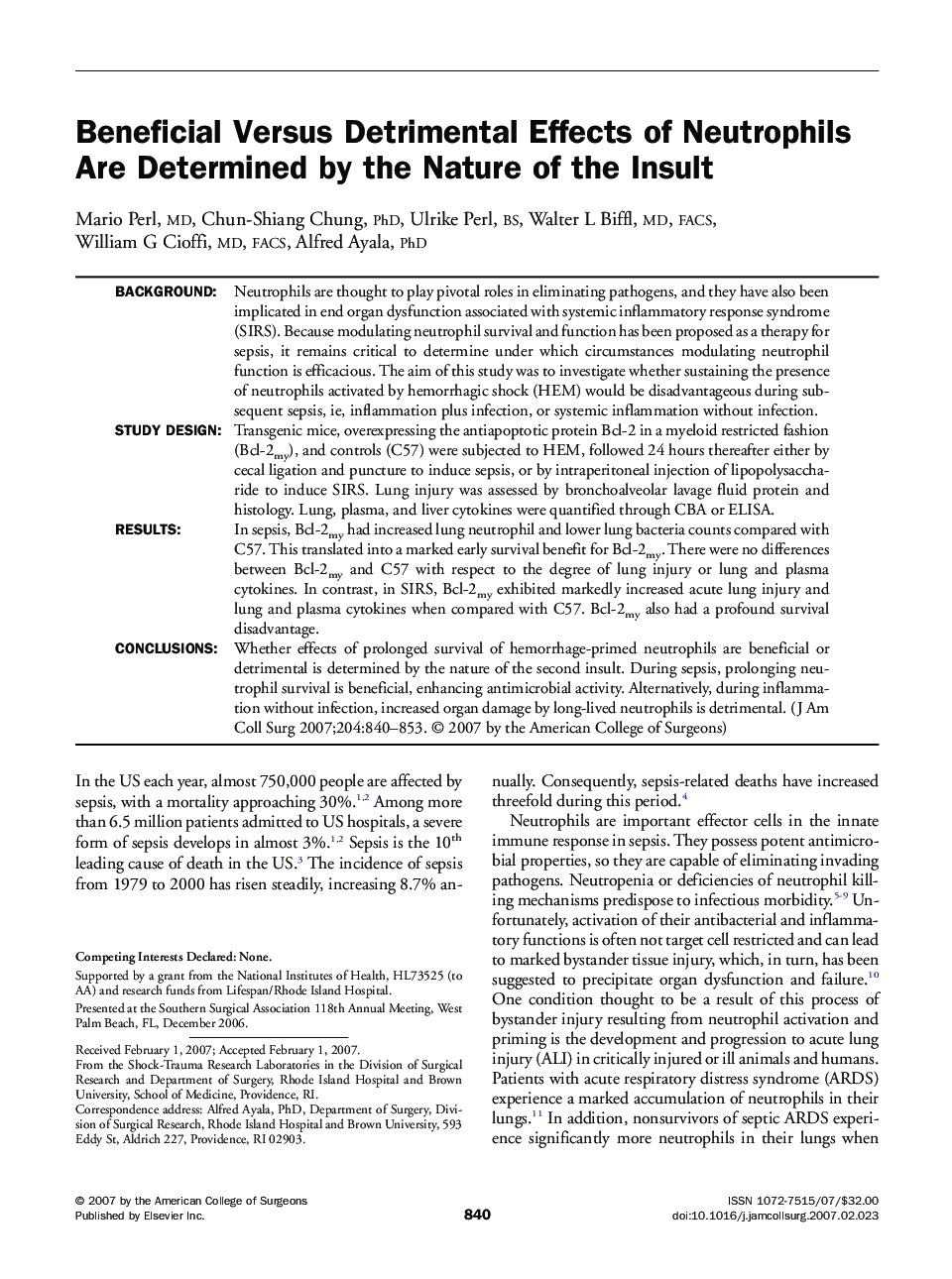| کد مقاله | کد نشریه | سال انتشار | مقاله انگلیسی | نسخه تمام متن |
|---|---|---|---|---|
| 4294545 | 1612326 | 2007 | 13 صفحه PDF | دانلود رایگان |

BackgroundNeutrophils are thought to play pivotal roles in eliminating pathogens, and they have also been implicated in end organ dysfunction associated with systemic inflammatory response syndrome (SIRS). Because modulating neutrophil survival and function has been proposed as a therapy for sepsis, it remains critical to determine under which circumstances modulating neutrophil function is efficacious. The aim of this study was to investigate whether sustaining the presence of neutrophils activated by hemorrhagic shock (HEM) would be disadvantageous during subsequent sepsis, ie, inflammation plus infection, or systemic inflammation without infection.Study DesignTransgenic mice, overexpressing the antiapoptotic protein Bcl-2 in a myeloid restricted fashion (Bcl-2my), and controls (C57) were subjected to HEM, followed 24 hours thereafter either by cecal ligation and puncture to induce sepsis, or by intraperitoneal injection of lipopolysaccharide to induce SIRS. Lung injury was assessed by bronchoalveolar lavage fluid protein and histology. Lung, plasma, and liver cytokines were quantified through CBA or ELISA.ResultsIn sepsis, Bcl-2my had increased lung neutrophil and lower lung bacteria counts compared with C57. This translated into a marked early survival benefit for Bcl-2my. There were no differences between Bcl-2my and C57 with respect to the degree of lung injury or lung and plasma cytokines. In contrast, in SIRS, Bcl-2my exhibited markedly increased acute lung injury and lung and plasma cytokines when compared with C57. Bcl-2my also had a profound survival disadvantage.ConclusionsWhether effects of prolonged survival of hemorrhage-primed neutrophils are beneficial or detrimental is determined by the nature of the second insult. During sepsis, prolonging neutrophil survival is beneficial, enhancing antimicrobial activity. Alternatively, during inflammation without infection, increased organ damage by long-lived neutrophils is detrimental.
Journal: Journal of the American College of Surgeons - Volume 204, Issue 5, May 2007, Pages 840–852